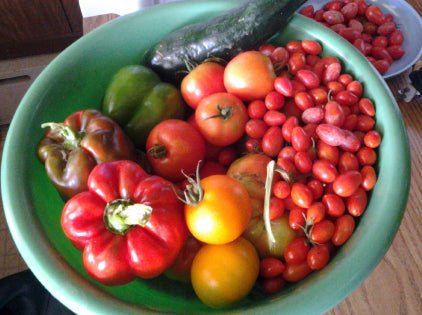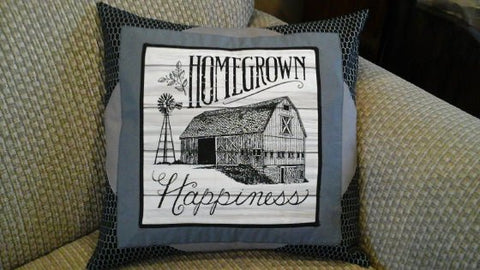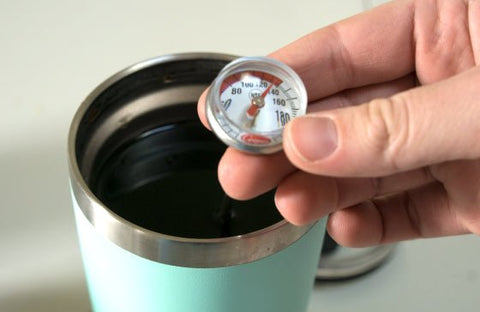
Spring has come, and for many folks in Lancaster County, Pennsylvania, that turns thoughts and conversations to—gardens!
For many people, gardening is a much-anticipated activity, a highlight of the year. They find the work of gardening—planning, planting, weeding, harvesting—to be enjoyable, relaxing, even therapeutic. A good garden can be a source of satisfaction, even pride.
On the other hand, there are people like me, who see gardening as a chore. I simply don’t have a “green thumb,” so working in a garden is just that: work. My parents are avid gardeners, so I spent countless hours in my childhood weeding, debugging, and harvesting. I know enough about gardening to know that I don’t especially care for it. But looking back, I can see the value of the garden in several ways:
- It taught me to stick at jobs I didn’t enjoy;
- It made me aware of how my food is produced;
- It made me appreciate the harvest.
And there’s no denying the pleasure of biting into a juicy tomato from your own garden, tucking into a plate of fresh green beans you picked that morning, or salting and buttering an ear of corn from your backyard!
I find it interesting that the Book of Genesis refers to both sides of gardening. The second chapter shows God Himself as a gardener, planting a garden in Eden, and commissioning His man to continue caring for it. This shows the positive aspect of gardening as a satisfying experience. In the third chapter, however, God punishes the disobedience of the man by making the cultivation of the earth difficult: a laborious, sweaty process of combating weeds. This shows that gardening can be frustrating, tedious, and uncertain. I’m sure that even the most diligent gardener will admit this to be true at times.
Since most of my experience in gardens has been more drudgery than delight, I decided to have a conversation with my father about gardening, so I can pass along his insights rather than my own. My father has been gardening his entire life, and grows a sizable garden every year. Following are my father’s tips for a successful and enjoyable gardening experience:
- Timing is Everything
First, planting at the right time is important. Certain vegetables do better in cool weather, and can be planted by the middle of March: onions, peas, beets, carrots, radishes. Potatoes can be planted by the middle of April. Corn, green beans, and lima beans shouldn’t be planted until the chance of frost is past, usually in early May, because they need warmer soil in which to germinate.
Some other crops shouldn’t be planted outdoors until May, including tomatoes, peppers, melons, and pumpkins, but can be started earlier indoors or in greenhouses. Sweet potatoes can be planted in June because they do fine even if the weather turns hot and dry. Finally, my father plants cabbage, broccoli, and cauliflower in the fall (late August or early September) to avoid root maggots which otherwise damage the crop.
- Start with New Seeds
My father prefers buying the latest varieties of plant and vegetable seeds. He feels that these offer better disease resistance and produce better yields, even though they are more expensive to buy. And any seeds not used should be stored in a refrigerator or a freezer so they don’t lose their ability to germinate until the next season.
- Don’t Overlook Your Soil
One thing which my father feels is very helpful in gardening is putting effort into improving the soil. In his opinion, one of the best and simplest ways to do this is by spreading a layer of mushroom soil on the soil annually. Mushroom soil provides nutrients and helps to keep water in the soil, and also enhances the tilth of the soil by separating clay particles and putting organic matter into the ground. It even helps to keep down the weeds!
- Have the Right Tools Handy
Of course, gardening successfully takes the right tools. The basic gardening tools are pretty simple: a hoe, a trowel, a tool to cut and prune, and a tool to cultivate the soil. Cultivation can be done by hand (using a hand cultivator) or by machine (a rototiller). You have to be willing to work hard, regularly and diligently. But work in hope, in anticipation of the harvest you will reap, Lord willing.
Good’s Store strives to meet the needs of gardeners with seeds from Burpee and Rohrer, hand tools and other garden supplies, and a full line of the fertilizers, insecticides, and herbicides available to homeowners. We also stock gloves, hats—even cooling towels—to make gardening easier, and seasonal garden flags to decorate your lawn.
May you have a satisfying, successful gardening experience this season.



Comments (1)
I enjoy gardening myself, and have what could (with a stretch of the imagination) be called a thriving garden. However, I like my fruits and produce vine-ripened, and by all appearances the neighborhood rabbits prefer them before they reach that stage. In fact, and you will find this preposterous, they enjoy eating the plants often the same week I plant them. Any suggestions on a good method to teach them The Better Way, or to instruct them that patience often yields a more rewarding result?